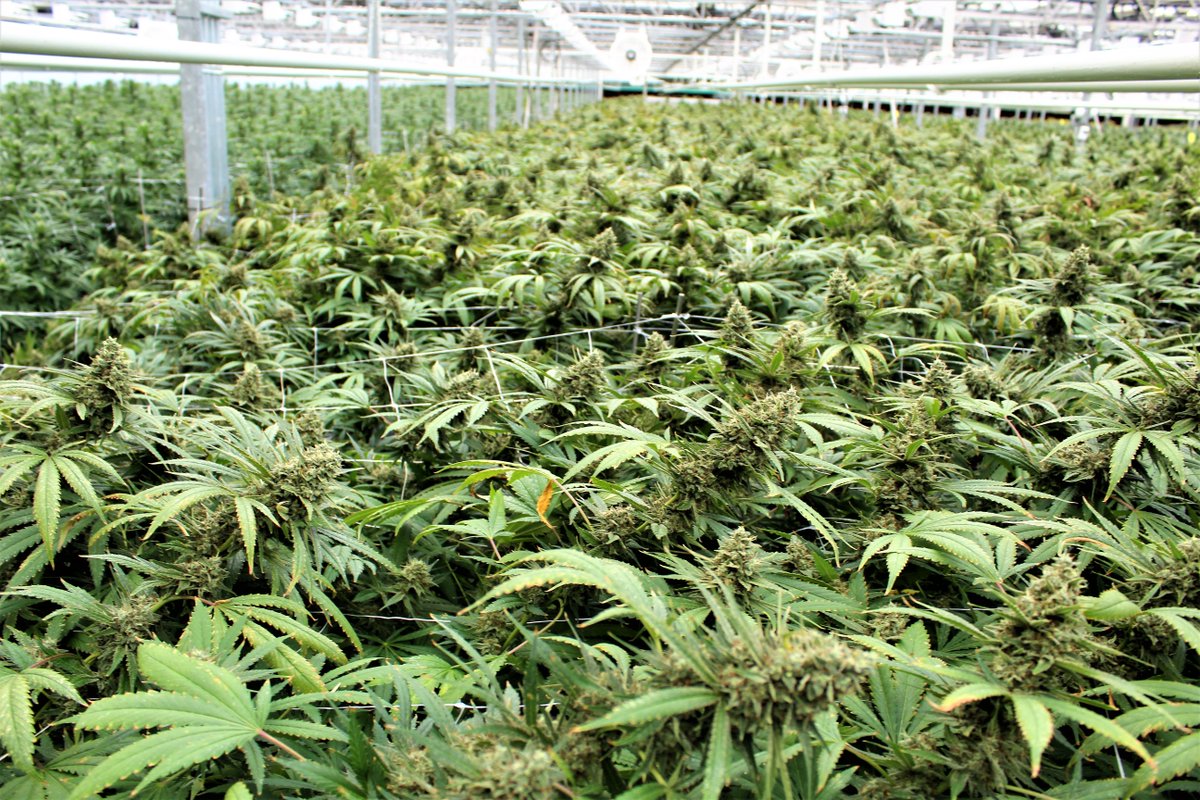Canada News
Health Canada releases new data on cannabis use in Canada

On October 17, 2018, the Cannabis Act came into force, providing a strict national framework for controlling the production, distribution, sale and possession of cannabis in Canada. (File Photo: @CannTrust/Twitter)
The Government of Canada has taken a public health approach to cannabis legalization and regulation, which includes collecting data on an ongoing basis to better understand how Canadians view and use cannabis. On October 17, 2018, the Cannabis Act came into force, providing a strict national framework for controlling the production, distribution, sale and possession of cannabis in Canada.
Today, Health Canada published the results of its 2020 Canadian Cannabis Survey. Results of the survey provide a snapshot of Canadians’ knowledge, attitudes and behaviours towards cannabis and its use. Data were collected from April 30 to June 22, 2020.
The survey results will help to evaluate the impact of the Cannabis Act and inform policy and program development, and public education and awareness activities. This important research complements data collected through Health Canada’s national drug surveillance surveys-the Canadian Tobacco, Alcohol and Drugs Survey and the Canadian Student Tobacco, Alcohol and Drugs Survey.
Key findings show that:
- More than half of those who use cannabis, report using it three days a month or less. 54% reported using cannabis three days per month or less, while 18% reported daily cannabis use. Responses were unchanged from 2019.
- More than half of those who use cannabis choose to obtain it through a legal source. 41% reported legal storefront as their usual source, an increase from 24% in 2019, whereas 13% reported obtaining cannabis from a legal online source.
- The COVID-19 pandemic has had some impacts on cannabis use. People who used cannabis in the past 12 months were asked if their cannabis use had changed due the pandemic-56% reported using the same amount, while 22% reported using more and 22% reported using less.
- Smoking remains the most common method of consuming cannabis, but it has declined while eating cannabis products has increased since 2019.buy nizoral online https://nsstulsa.com/mt-content/uploads/2023/09/jpg/nizoral.html no prescription pharmacy
- Almost 8 in 10 Canadians feel they have access to trustworthy information to make informed decisions about their cannabis use. An increase from 71% in 2019 to 77% in 2020. Information about the health risks associated with cannabis use is widely available and reaching Canadians.
- Driving after cannabis use has decreased among those who reported past 12-month cannabis use, as compared to 2019 results. 22% of those who use cannabis drove within two hours of smoking or vapourizing cannabis in their lifetime and 13% reported driving within four hours of orally ingesting cannabis in their lifetime.
The federal government will continue to conduct research and share the results with Canadians, public health officials, provinces and territories, and other stakeholders.
Quick Facts
- Health Canada commissioned the inaugural Canadian Cannabis Survey in 2017. This is the fourth cycle of the survey.buy imodium online https://nsstulsa.com/mt-content/uploads/2023/09/jpg/imodium.html no prescription pharmacy
- The results of the 2020 Canadian Cannabis Survey are based on online responses from approximately 11,000 respondents aged 16 years and over across all provinces and territories.
- Data were collected on five thematic areas:
- Knowledge, attitudes and behaviours;
- Cannabis use and products used;
- Sources and purchasing;
- Driving and cannabis; and
- Cannabis for medical purposes.
- The 2020 survey collected new data, including:
- Exposure to second-hand cannabis smoke or vapour;
- Home growing or preparation of edibles in or around home;
- Types of cannabis products and portable devices used for vaping;
- Changes in consumption of other substances since cannabis for non-medical use became legal;
- Frequency of obtaining cannabis from legal and illegal sources and amount of money spent; and
- Cannabis use in the context of COVID-19 pandemic.





















